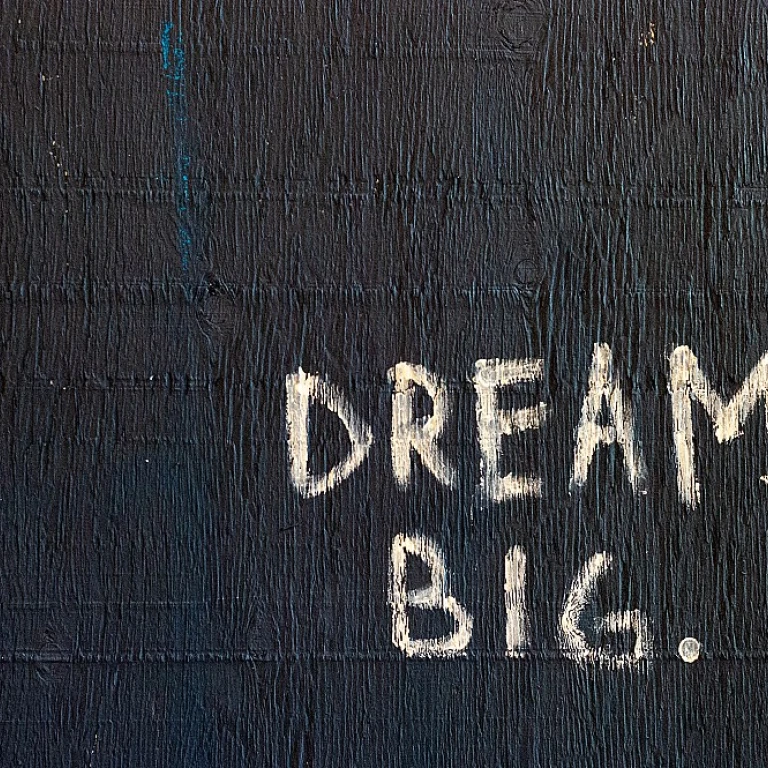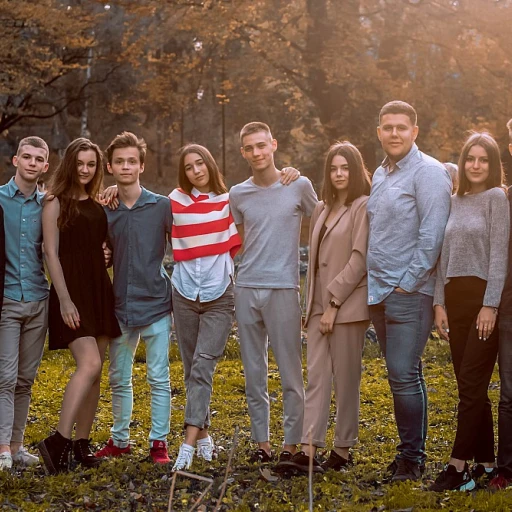
Understanding the purpose of brain teaser interview questions
Why Do Employers Use Brain Teasers in Interviews?
Brain teaser interview questions are not just about finding the right answer. In consulting interviews and other competitive fields, these questions are designed to reveal much more about a candidate’s problem solving skills, critical thinking, and ability to stay calm under pressure. Consulting firms, in particular, use brain teasers to see how you approach unfamiliar problems, whether you can break down complex scenarios, and how you communicate your thought process.
Unlike traditional interview questions, brain teasers often have no single correct answer. Instead, the focus is on your reasoning, the steps you take, and how you handle ambiguity. For example, you might be asked to determine which ball is heavier using a limited number of weighings, or to estimate how many gas stations are in a city. These questions test your ability to structure a solution, use logic, and sometimes apply basic math or probability concepts.
Employers want to see if you can:
- Break down a complex problem into manageable parts
- Think creatively and logically
- Explain your reasoning clearly
- Stay composed when faced with unexpected challenges
In consulting brain teaser interviews, it’s not just about getting the answer right. It’s about showing your approach, your willingness to ask clarifying questions, and your resilience when the solution isn’t obvious. These are all qualities valued in consulting firms and other industries that rely on strong analytical and problem solving abilities.
If you’re preparing for interviews where brain teasers or case interview questions might come up, it’s helpful to review inspiring quotes on management and leadership to boost your mindset and confidence. Remember, the goal is to demonstrate your thinking, not just to solve the teaser.
Common types of brain teaser interview questions
Popular Brain Teaser Formats in HR and Consulting Interviews
Brain teaser interview questions come in many shapes and sizes, especially in HR and consulting interviews. These questions are designed to test your problem solving skills, critical thinking, and ability to stay calm under pressure. Understanding the different types of brain teasers can help you prepare more effectively and avoid surprises during your next interview.
- Logic puzzles: These questions require you to use deductive reasoning to find a solution. For example, you might be asked to determine which ball is heavier using a limited number of weighings, or to figure out how many gas stations are needed along a route.
- Math and probability problems: Consulting firms often use math-based teasers to assess your quantitative skills. You could be asked to calculate the probability of drawing a certain number of apples or oranges from a basket, or to solve a problem involving the number of balls in a box.
- Estimation questions: These are common in case interviews and consulting brain teaser sessions. You may be asked to estimate how many tennis balls will fit in a bus, or how many gas stations are in a city. The focus is less on the exact answer and more on your approach and logical reasoning.
- Pattern recognition: Some brain teasers test your ability to spot patterns or sequences. For example, you might be given a series of numbers and asked to predict the next one, or to identify a missing element in a sequence.
- Word and lateral thinking puzzles: These questions challenge you to think creatively and outside the box. You could be asked to solve riddles or to find connections between seemingly unrelated concepts, such as how to separate apples and oranges using the fewest moves.
Teaser questions are not just about finding the right answer. Interviewers are interested in your thought process, how you break down complex problems, and how you communicate your solution. Practicing with creative brain teaser examples can help you get comfortable with these formats and improve your performance in consulting interviews or HR assessments.
| Type of Brain Teaser | Example Question | Skills Assessed |
|---|---|---|
| Logic Puzzle | How can you find the heavier ball among eight using only two weighings? | Problem solving, logical reasoning |
| Math/Probability | What is the probability of picking two oranges from a basket with apples and oranges? | Math skills, probability, analytical thinking |
| Estimation | How many gas stations are there in your city? | Estimation, structured thinking |
| Pattern Recognition | What is the next number in the sequence: 2, 4, 8, 16, ...? | Pattern recognition, critical thinking |
| Lateral Thinking | How would you separate apples and oranges in the least number of moves? | Creative thinking, problem solving |
Familiarizing yourself with these common brain teaser formats and practicing your answers will help you feel more confident during your next HR or consulting interview. Remember, the goal is not just to get the right answer, but to show your approach and reasoning along the way.
How to approach brain teaser questions under pressure
Staying Calm and Structured When Faced with Brain Teasers
When you’re in a brainteaser interview, especially with consulting firms or during case interviews, the pressure can feel intense. The interviewer might present a question about probability, math, or even quirky scenarios like apples and oranges, or the classic ball heavier problem. The key is not just to find the right answer, but to show your problem solving skills and critical thinking under stress.
- Pause and Clarify: Don’t rush. Take a moment to understand the question. If anything is unclear, ask for clarification. This shows you’re thorough and not afraid to communicate.
- Think Out Loud: Interviewers want to hear your thought process. Walk them through your approach, whether you’re estimating the number of gas stations in a city or figuring out how to fill a box with balls. This transparency is valued in consulting brain teaser interviews.
- Break Down the Problem: Divide the question into smaller, manageable parts. For example, if you’re asked about probability or a math teaser, outline your assumptions and calculations step by step.
- Stay Flexible: If you realize your initial approach isn’t working, it’s okay to pivot. Explain why you’re changing direction. Adaptability is a strong signal to consulting interviewers.
- Manage Your Nerves: It’s normal to feel pressure. Take a deep breath, and remember that the interviewer is more interested in your approach than a perfect solution. Practicing with teaser examples can help you get comfortable with this environment.
Demonstrating composure and a logical approach in brainteaser interview questions can set you apart. These skills are not only useful for the interview itself, but also for the onboarding process in HR roles, where problem solving and clear communication are essential.
What HR interviewers look for in your answers
What Interviewers Really Want to See in Your Brain Teaser Answers
When you face brain teaser interview questions, especially in consulting interviews or case interviews, the interviewer is not just interested in whether you get the correct answer. They are evaluating several core skills and qualities that matter in HR and consulting roles.- Problem Solving Process: Interviewers want to see how you break down a complex problem. Do you clarify the question? Do you structure your approach logically? For example, if you get a math or probability teaser about finding the heavier ball among several balls, explaining your steps is often more important than the final answer.
- Critical Thinking: Brain teasers are designed to test your ability to think critically and challenge assumptions. If a question asks how many gas stations are in a city, interviewers look for your reasoning, not just a number. They want to see you estimate, use relevant data, and justify your solution.
- Communication Skills: In consulting brain teaser interviews, clear communication is key. Can you explain your logic in a way that’s easy to follow? This is crucial in HR roles where you’ll need to present solutions and influence others.
- Composure Under Pressure: Many brain teaser questions are intentionally challenging. Interviewers observe how you handle stress and uncertainty. Do you stay calm and keep working through the problem, or do you freeze up?
- Creativity and Flexibility: Some teaser questions, like comparing apples and oranges or filling a container with balls, test your ability to think outside the box. Interviewers appreciate candidates who consider multiple approaches or adapt their strategy if their first answer doesn’t work.
What Makes a Strong Brain Teaser Answer?
A strong answer to a brain teaser interview question is not always about getting the solution right. Here’s what consulting firms and HR interviewers value:- Stating your assumptions clearly (for example, when estimating the number of gas stations or solving a probability teaser)
- Breaking the problem into manageable steps
- Showing your calculations and logic, especially in math or ball heavier questions
- Admitting if you’re unsure, but explaining how you’d find the answer
- Summarizing your solution and reasoning at the end
Sample brain teaser interview questions and how to tackle them
Classic brain teaser examples and how to break them down
Brain teaser interview questions are a staple in consulting interviews and HR assessments. They are designed to test your problem solving skills, critical thinking, and ability to stay calm under pressure. Here are some well-known teaser questions, along with strategies for structuring your answers:- The "Heavier Ball" Problem
Question: You have 8 balls. One ball is heavier, but you don’t know which. Using a balance scale only twice, how do you find the heavier ball?
How to tackle: Divide the balls into three groups (3, 3, 2). Weigh two groups of three. If they balance, the heavier ball is in the group of two; if not, it’s in the heavier group. Then, weigh two balls from the suspect group to find the answer. This shows your logical approach and ability to break down a problem. - Apples and Oranges Sorting
Question: You have three boxes: one with apples, one with oranges, and one with both. All are mislabeled. How can you label them correctly by picking just one fruit from one box?
How to tackle: Pick from the box labeled "apples and oranges." Since it’s mislabeled, whatever you pick tells you what’s actually inside. Use process of elimination to fix the other labels. This demonstrates your reasoning and attention to detail. - Gas Stations and Distance
Question: There are gas stations around a circular track. Your car can start at any station and complete the circle if you start at the right one. How do you find the starting point?
How to tackle: Analyze the net gain or loss of fuel at each station. The solution involves understanding cumulative probability and math, showing your analytical thinking. - Math and Probability Teasers
Example: What is the probability of picking two balls of the same color from a box with a certain number of red and blue balls?
How to tackle: Lay out the total number of balls, calculate the probability step by step, and explain your reasoning clearly. Consulting firms value clear, structured answers over just the final solution.
Structuring your answers for maximum impact
When faced with brain teaser questions in interviews, especially in consulting or case interviews, interviewers are not just looking for the correct solution. They want to see your approach:- Clarify the question if needed. Don’t hesitate to ask for more details.
- Think out loud. Walk through your logic and problem solving process.
- Break the problem into smaller steps. This shows your critical thinking and organization.
- Be honest if you get stuck. Interviewers appreciate transparency and a willingness to adapt.
Why these questions matter in consulting interviews
Consulting brain teasers and case interview questions are not just about the answer. They test your ability to handle ambiguity, work with numbers, and communicate under pressure. Practicing with real teaser examples and reviewing sample answers will help you build confidence and improve your performance in HR and consulting interviews.Tips to practice and improve your brain teaser skills
Building Your Brain Teaser Toolkit
Improving your brain teaser and problem solving skills for consulting interviews or HR job interviews takes practice and the right approach. Here are practical ways to get better at answering brain teaser questions and boost your confidence during interviews:
- Practice with Real Examples
Look for common brain teaser questions used in consulting firms, such as the classic “how many gas stations are in your city?” or “how would you find the heavier ball among eight balls with a balance scale?” Try to answer these questions on your own, then review examples answers to understand different solution paths. - Understand the Logic Behind Teasers
Don’t just memorize answers. Focus on the reasoning process. For example, when faced with a math or probability teaser, break the problem into smaller steps. Ask yourself: What information do I have? What is the question really asking? This helps in case interviews where critical thinking is key. - Time Yourself
Consulting brain teaser interviews often test your ability to think under pressure. Set a timer when practicing to simulate real interview conditions. This will help you stay calm and organized when you face a tough question. - Work on Mental Math and Estimation
Many teasers consulting firms use involve numbers, such as estimating the number of apples oranges sold in a city or the number of balls that can fill a room. Practice quick calculations and estimation techniques to improve your speed and accuracy. - Join Problem Solving Groups
Engage with online forums or local groups focused on brain teasers and case interview preparation. Discussing different teaser examples and answers with others exposes you to new ways of thinking and problem solving. - Reflect on Your Mistakes
After practicing, review where you struggled. Did you miss a key detail in the question? Did you jump to a solution too quickly? Learning from your errors is essential for growth.
Resources to Sharpen Your Skills
| Resource | Focus Area |
|---|---|
| Case interview prep books | Consulting brain teasers, case interviews, structured answers |
| Online puzzle platforms | Math, logic, and probability questions |
| Mock interviews | Realistic interview questions, feedback on answers |
| Math and logic apps | Quick problem solving, mental math practice |
By consistently practicing with a variety of brain teasers and reflecting on your approach, you’ll develop the critical thinking and problem solving skills that HR interviewers and consulting firms value. Remember, it’s not just about finding the right answer, but showing your process and resilience when tackling tough questions.













